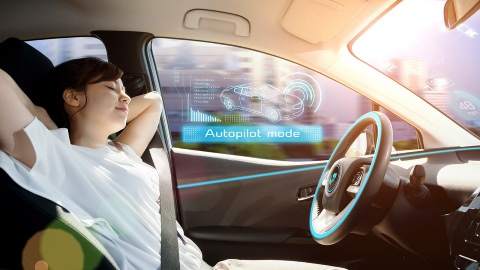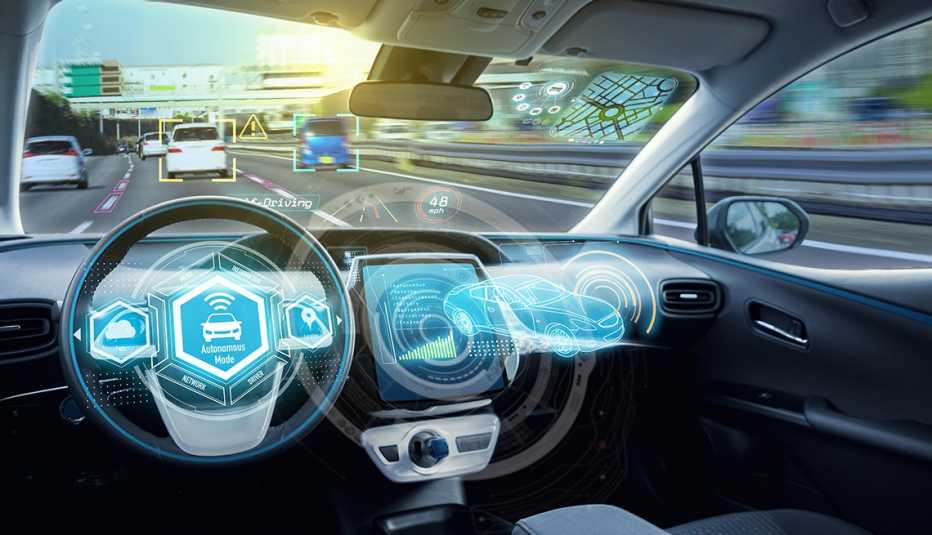
History of electric cars
September 4, 2024
Guide to choosing the right car for the family
September 10, 2024Advantages and disadvantages of self-driving cars
Advantages and disadvantages of self-driving cars
Self-driving cars, as one of the most advanced transportation technologies in today’s era, have attracted the attention of many experts and the general public. These smart vehicles, using advanced artificial intelligence systems and accurate sensors, are capable of automatic guidance without the need for human intervention. Although the potential benefits of this technology, including increased road safety and reduced traffic, are impressive, there are also challenges and concerns about their widespread use.
In this article, we will examine the advantages and disadvantages of self-driving cars. On the one hand, this technology can lead to a significant reduction in accidents caused by human error, improve transportation efficiency, and increase access to places for disabled people. On the other hand, issues such as cyber security, legal responsibility in the event of an accident, and extensive socio-economic effects are serious challenges facing the development of this technology. In the following, we will analyze these aspects more deeply to gain a more comprehensive understanding of the future of self-driving transportation.

Advantages of self-driving cars
- Increasing road safety
One of the most important advantages of self-driving cars is their potential to significantly reduce road accidents. According to statistics, more than 90% of traffic accidents are caused by human error. Self-driving cars can significantly increase road safety by eliminating human factors such as fatigue, distraction and driving under the influence of alcohol.
With the advent of these cars, the concept of renting a car with a driver in Iran may change. Instead of a human driver, customers can rent self-driving cars that do not require a driver.
- Improve traffic flow
Self-driving cars are able to optimize traffic flow using advanced algorithms and inter-vehicle communication. This can lead to less congestion on the roads and improve travel time. - Increasing productivity
By eliminating the need to focus on driving, their passengers can devote travel time to other activities. This issue can lead to an increase in the overall productivity of the society.
Renting a car without a driver in Iran can be much easier and safer with self-driving cars. Customers can request a car through the application and the car will automatically go to their desired location. - Greater access to transportation
Self-driving cars can provide independent transportation for the disabled, the elderly, and those who are unable to drive. - Reducing environmental pollution
By optimizing routes and driving patterns, self-driving cars can reduce fuel consumption and thus help reduce greenhouse gas emissions.
Disadvantages of self-driving cars
- Cyber security challenges
One of the biggest concerns about self-driving cars is their vulnerability to cyber attacks. Hacking these cars can lead to a serious disaster on the roads. - Ethical issues and decision making
In emergency situations, these cars have to make complex ethical decisions. For example, if an accident is unavoidable, they have to choose between harming their passengers or pedestrians. - High costs
The technology required for them is very expensive. This can lead to an increase in the price of cars and limiting public access to this technology. - Loss of jobs
The spread of this car insurance could lead to the loss of jobs related to driving, such as taxi and truck drivers. This issue can have wide socio-economic effects. - Legal responsibility in case of accident
Determining liability in the event of an accident with self-driving cars can be challenging. Will the car manufacturer, the software company or the car owner be responsible?
Comparing the advantages and disadvantages of self-driving cars
To better understand the different aspects, we compare the main advantages and disadvantages of this technology in the following table:
The impact of self-driving cars on the car rental industry in Iran
With the expansion of self-driving car technology, the car rental industry in Iran will also undergo fundamental changes. These changes can create new opportunities and challenges for this industry.
Challenges ahead in the development of self-driving cars
Despite the significant advances in this technology, there are still significant challenges facing the development and widespread adoption of this technology:
- Improved performance in adverse weather conditions: Self-driving cars must be able to perform well in all weather conditions, including heavy rain, snow, and thick fog.
- Complying with laws and regulations: creating a suitable legal framework for the use of self-driving cars on public roads is still a big challenge.
- Improvement of environment perception: The environment recognition and perception systems in self-driving cars must be advanced to the point that they can correctly interpret all the details of the surrounding environment.
- Building public trust: gaining the public’s trust in the safety and reliability of self-driving cars is one of the main challenges in the widespread adoption of this technology.
- Coordination with existing infrastructure: Integration of self-driving cars with existing road infrastructure and current traffic systems requires careful planning and extensive investment.
The future of self-driving cars
Due to the rapid developments in the field of artificial intelligence and related technologies, it is expected that self-driving cars will be used more widely in the near future. Some predictions for the future of this technology are:
- Integration with public transportation systems
- Reduction of personal car ownership
- Change in urban design
- Advances in battery technology
Even in the field of bridal car rental, self-driving cars can provide a unique experience.  Advantages and disadvantages of self-driving cars (3)
Advantages and disadvantages of self-driving cars (3)
conclusion
Self-driving cars undoubtedly have the potential to fundamentally change the way we travel and live. The potential benefits of this technology, including increased safety, improved traffic flow and increased access to transportation, are impressive. However, there are also significant challenges that need to be overcome before widespread adoption of this technology.
Among these challenges, cyber security issues, legal responsibility and socio-economic effects can be mentioned. Also, related industries such as car rental in Iran must adapt to these changes and take advantage of new opportunities.
Ultimately, the success of self-driving cars depends on our ability to solve these challenges and create the right legal and infrastructure framework. However, due to the rapid developments in this field, we can expect that self-driving cars will play an important role in our transportation system in the near future.




